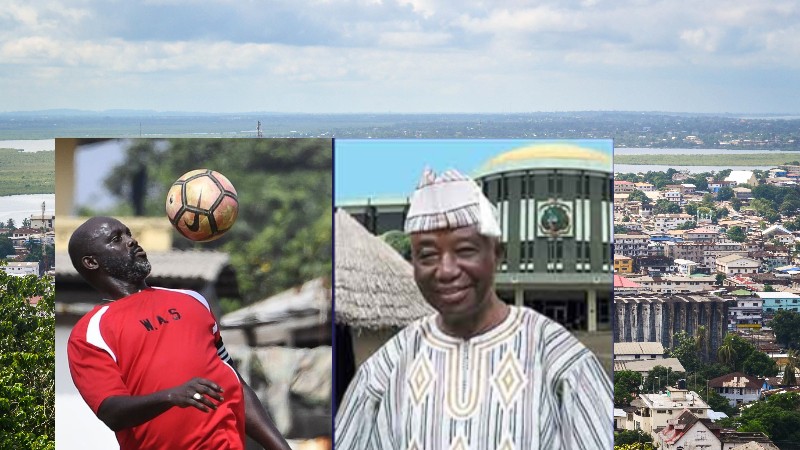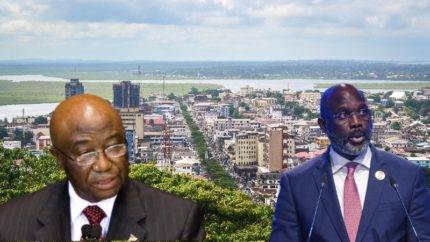Liberia witnessed a historic moment as Joseph Boakai, the opposition candidate, emerged victorious in the presidential race, defeating incumbent President George Weah. The announcement of Boakai’s unassailable lead by 28,000 votes marked a pivotal moment in the nation’s democratic journey.
Joseph Boakai, 78, a former vice president who previously faced defeat against Weah in the 2017 election, has emerged victorious with 50.9% of the vote, as per the announcement from the country’s elections commission on Friday. Weah secured 49.1% of the votes in this closely contested race. This outcome represents a significant shift from the 2017 election, where global soccer legend Weah, riding a wave of optimism, convincingly defeated Boakai with 62% of the vote. Since then, public sentiment has soured due to perceived stagnation in addressing issues such as poverty, unemployment, food insecurity, and inadequate electricity supply.
Joseph Boakai’s Triumph
Joseph Boakai’s win signifies a significant shift in Liberian politics. With 50.89% of the votes, the 78-year-old veteran politician secured a hard-fought victory, emphasizing his years of experience and vision for the country. Boakai’s campaign highlighted the urgent need to address corruption, economic challenges, and rising prices, resonating deeply with voters seeking change.
Weah’s Concession Something Rare in Africa’s Politics
Liberia’s President George Weah gracefully acknowledged his defeat in the recent election to opposition leader Joseph Boakai. The closely contested race concluded with Weah conceding, marking the end of a presidency clouded by corruption allegations. The announcement, made via a national radio statement on Friday, contributes to a smooth transition of power in this once turbulent African nation. Weah, recognizing the democratic process, stated, “Moments ago, I had a conversation with President-elect Joseph Boakai to extend my congratulations on his victory. I encourage all citizens to emulate my example and embrace the election results.”

Weah’s concession marks a historic moment for Liberia, as it sets the stage for the country’s second democratic transfer of power in over seven decades. The first instance occurred six years ago when Weah assumed office.
This development is particularly noteworthy in the context of West and Central Africa, where political instability has manifested through eight military coups in the past three years, eroding confidence in the democratic electoral process. Elections in the region are often marred by accusations of fraud, and results are commonly contested in court, contributing to a climate of uncertainty and skepticism surrounding the democratic system. Weah’s willingness to acknowledge the election outcome stands in contrast to these challenges, highlighting the importance of a peaceful and orderly transition of power in the region.
Given the recent political trends, particularly in Nigeria, Weah’s concession holds significant importance as a model for handling hard-fought elections with grace and maturity. In an era marked by contentious political environments, characterized by bickering and spite, Weah’s willingness to accept defeat peacefully sets a positive example. It underscores the value of fostering a spirit of cooperation and unity, even in the face of political rivalry, ultimately contributing to a more stable and harmonious democratic process. This move by Weah serves as a beacon for the region, emphasizing the constructive resolution of electoral disputes for the greater good of the nation.
President Weah: Navigating the Peaks and Valleys of Public Opinion
President Weah acknowledging the voice of the Liberian people and the importance of the democratic process. Weah’s tenure, starting in 2018, initially captured widespread enthusiasm, particularly among younger voters. However, perceptions of unaddressed corruption and economic woes tarnished his image over time.
The run-off election, necessitated by neither candidate securing over 50% of the votes in the first round, witnessed a tight contest between Weah and Boakai. The initial round, featuring 18 candidates, showcased Weah’s narrow lead, setting the stage for a closely watched and historic run-off. Boakai’s campaigning centered on rescuing Liberia from what he termed as mismanagement under Weah’s administration.
Election Dynamics and Post-Election Atmosphere
Following the announcement of Boakai’s victory, celebrations erupted in Monrovia, underscoring the widespread belief among Boakai’s supporters that he would triumph. However, the president’s supporters voiced their disappointment as Weah graciously acknowledged the need for unity despite the deep division revealed by the closeness of the race.
Liberia, a country healing from a devastating civil war just two decades ago, embarks on a new chapter under the leadership of Joseph Boakai. His win reflects the Liberian people’s aspirations for change and a concerted effort to address pressing socio-economic challenges. While the election saw largely peaceful proceedings, isolated incidents in some provinces highlighted the need for continued vigilance and unity as the nation moves forward.
Table of Contents
Discover more from OGM News NG
Subscribe to get the latest posts sent to your email.














